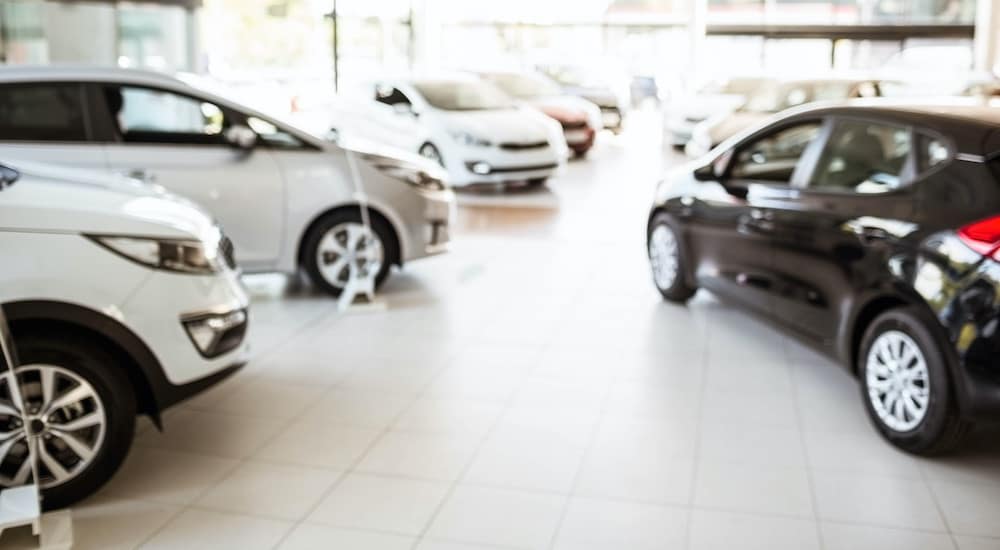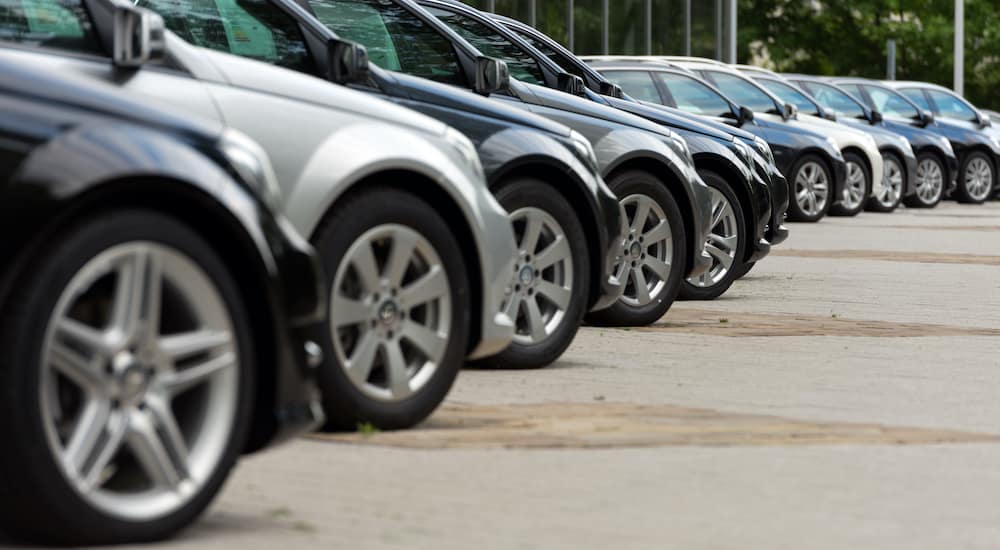If you are trying to decide between buying a new or used SUV, the cost alone may be enough to sway you toward finding a local used SUV dealer. Have you considered there might be unexpected benefits of buying used beyond just savings? It’s true that a used vehicle costs a lot less than new in terms of financing and monthly payment costs, but you typically save on insurance costs, too. Most new cars are more expensive to fix, and the insurance companies take that into account when they set your rates. Some states have cheaper fees for the registration of used vehicles, which is yet another savings.
While savings alone are motivating, there are other reasons to buy a used SUV, many of them environmental. If you plan to off-road, you will need to purchase aftermarket parts to customize, a cost that will be more affordable if you pay less upfront. Let’s dive into the surprising benefits of purchasing used vehicles.
Cost Benefits
Let’s face it: a used car is more economical. Vehicles depreciate the instant you leave the dealership lot, and every year of a vehicle’s life means it holds less value. Few cars have been able to attain a classic car status that either appreciates or holds the value of their overall worth, and an SUV you plan to take off-road is going to take a beating. Why buy a new SUV that’s going to get bumped and scraped over rocks and debris on the trail? Newer vehicles produced in the last decade have much longer life spans anyway, so you can get more mileage out of a used vehicle now than you could 20 years ago. Keep in mind that you may still have warranty coverage that could rollover from the original owner if the used vehicle falls within the range of requirements. A few manufacturers will honor some or all of the original warranty when ownership is transferred.

Environmental Savings
If you love to get outdoors, you probably want to make as little impact on the environment as possible. There are those yahoos that don’t care about nature when they go off-roading, but a lot of reasons to get off the road have to do with the challenge nature provides and getting to see things you never find along the highway. Driving a vehicle of any kind is probably not great for the environment, but it may come as a surprise that most of the emissions dangerous for the planet are released during manufacturing, not from driving. Buying a used SUV instead of new means you’re not contributing to the manufacture of yet another costly vehicle. Between 28-50% of the emissions caused by a vehicle in its life span occur during production.
Other costs to consider with a new car include the price of transporting the vehicle to a dealership, which is typically done on a truck bed. Not environmentally friendly. When a vehicle is junked instead of driven until it outlasts its usefulness, that’s a cost to the environment, too. Even though parts are salvaged and some of the vehicle is recycled, there are a lot of toxic materials used in the production process that require special containment or treatment if dismantling a vehicle that is being retired. The process is not simple, and it’s better if a vehicle can be driven for as long as possible.
While the answer to these problems might seem like the best choice would be to buy a hybrid or electric vehicle (EV), buying one new still presents the same issues of production emissions, and there are the batteries to consider. With more hybrids and EVs, there are higher demands for the materials to create the batteries which power them. Materials used to build lithium-ion batteries are often found in places where the raw compounds are not easy to extract, and they are made with rare earth minerals, which are in high demand for cell phones as well. Eventually, the materials will run out, so the process isn’t sustainable, nor is it cheap to mine and refine these materials. The lead-acid batteries used in gas-powered engines don’t have the same issues.
This isn’t to say that hybrids and EVs are a bad choice since they do have a lower carbon emission output overall than gas-powered vehicles, but they aren’t the perfect solution, either. It’s important to take into account the fact that plugging in these vehicles also pulls energy from the electrical grid. Unless you happen to be using sustainable electric power, much of the power from the grid is still coal-burning and will still have a carbon cost. So, what is the best answer? If you buy used, even a gas-powered vehicle will be more environmentally friendly than a brand new hybrid or EV. If you get lucky, you could find a used hybrid or EV and really save money because you won’t have to visit the gas pump as often, if ever. Win-win.
Aftermarket Customization
Off-road SUVs generally require aftermarket parts to beef up the performance, whether it’s new or used. Even if you order an SUV new with all the bells and whistles added for performance, to really go off-roading as a serious pursuit, you will still need to add or improve on what the factory can build. If you buy a used SUV, you might find one that’s already been outfitted with equipment, which can save you time and money. Even if you find an off-road variant that hasn’t been rigged out, if it’s used, you still save cash on the price so you can spend that money on the parts you need.
When you customize an SUV for off-roading, you need to think about larger brakes for better stopping power so you know your SUV can handle those steep inclines and rough terrain. A suspension upgrade will be a must for performance and safety. Off-road tires are another must in order to make better contact with the surface you expect to encounter in the terrain you cover; without the proper tires, you won’t have traction.
Winches are an off-road life-saver. When you get stuck (and you will), the winch is what gets you out of trouble. Some off-roaders prefer to add beefier fenders or fog lights for improved visibility at night, and others like having a roof rack for supplies. Towing a camper so you can camp wherever you land will require a hitch assembly. This is only a short list of possibilities covering basics. Off-road customizing can get expensive, so you should save yourself the headache and buy a used SUV.

Bragging Rights
Off-road SUVs are often seen as a luxury, like a toy you don’t need, but some folks live in rural areas and use them for work or travel. Without the proper equipment, you may not get to your destination when you have to travel on rough roads. If you’ve ever driven on a dirt road during mud season, you know how much fun snapping an axle can be. Even if it is a toy, so what?
The bottom line is this: buying used is a benefit for many reasons beyond just savings. There are so many points in favor of buying used that it’s hard to see why you would want to pay the premium for a new car. Save money, save the environment, and leave a little extra cash in your pocket for some aftermarket customization when you buy used.



